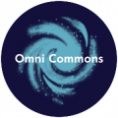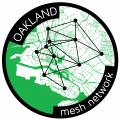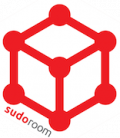|
|
My virtual wandering through the thousands of bulletin boards that make up Tribe.net exposed me to two terms I’d never heard of before, but instantly caught my attention: technoshamanism and neotribalism. Both terms evoke a somewhat romantic notion of merging modern technologies with our ancient tribal past. For instance, certain kinds of electronic music are claimed to have the capacity to induce trance-like states that are shared by a group of people through ecstatic dance, evoking images of shamanic tribal rituals in various parts of the world (such as South America, India, and Africa). Synthetic drugs such as LSD (“acid”) and MDMA (“ecstasy”) are frequently ingested as well, to aid in inducing trance-like states, altering visual and auditory perceptions, and enhancing feelings of connectedness to others and the “divine within”. In the words of one Tribe.net member:
“To me, [technoshamanism] is getting in touch with the past and uniting it with the present. Our species has danced the night away to a rhythm and beat for as long as we have had consciousness to do so. Whether it be an animal hide-based drum, or a drum machine the sound is the same. If music in general was compared to say, the English language, its beat and rhythm would be the vowel sounds that make up every word in existence. Understood by all who hear it regardless of ethnicity or creed.”
Various parallels with these ideas/beliefs can be found with religious movements: prophetic figures have emerged throughout the past half-century (such as Timothy Leary, Terence McKenna, Alex Grey and Daniel Pinchbeck), some of whom espouse the belief (traces of which can be found throughout the site) that the world will either come to an end in the year 2012, or become embroiled in a global spiritual transformation (this theory is rooted in the Mayan Calendar, but I won’t get too gritty with the details. It’s all widely disputed by Mayanist scholars). “The tribes and the primitive people will survive,” predicts a 50-year old Californian man, “know how to get all that you need from the earth. Nothing else can be expected to survive.” Like the Back-to-the-Land movement of the 1960’s, neotribalists seek a return to humanity’s “ancestral roots” through developing local, self-sustaining communities, with an emphasis on creating a global network of interconnected tribes. The Internet is, quite naturally, one of those modern technologies that is utilized by technoshamans as a means of tapping into the collective neural network.
Underlying the ideology of neotribalism is the concept of a universal consciousness that has been forgotten in the wake of civilization, and that must be rediscovered if humanity is to survive. A technoshaman, then, is a guide, one who integrates modern technology into primordial practices in order to induce transcendent experiences. Now, such a description evokes remnants of that anthropological black mark- the noble savage. From my vantage point, it feels a bit shameful- white hippies “going tribal,” attempting to appropriate cultural practices that have developed over centuries.
[Edit: Thanks for the feedback. My feelings about its shamefulness extend from my own personal experiences with such practices, and wondering, at times, if we are being duped into the sense of communitas- often brought about only through the aid of drugs. I’ve thrown many such parties, where I provided no drugs, in an attempt to see if *it* could be spontaneously generated without such additions… I failed, but that doesn’t mean I’ll stop trying…
I agree, we are enculturated to look down on such practices. And that’s fucked up.]
Your feedback is strongly encouraged… tap into my neural network, damnit!
I ran across an interesting thread on Tribe.net yesterday entitled “What is Technoshamanism?” You can read it here, but in a nutshell, the respondees described technoshamanism as a means of uniting the past and the present, or the spiritual and the technological. From dancing around a bonfire to the beat of the drums, to dancing all night long to electronic trance music, the end goal is a spiritual connection to the universe that dates back to the beginning of humankind’s time on this planet.
I have to simply marvel, at times, how meticulously the system of Facebook is run. Nothing is deleted, all is stored. Upon deleting my Facebook account, I learned that the moment I logged in again, my entire account- the photos, the messages, the wall posts- would be rekindled from my momentary lapse of Facebook identity, as if I had taken a vacation… which, admittedly, I had.
The new frontier for individualism, the virtual frontier, is at this point still an open one. However, as this sphere becomes increasingly dominated by large corporate networks, understanding the illusory nature of agency is critical. John Barlow’s Declaration for the Independence of Cyberspace has never been more poignant.
Asked to attempt a summation of the online social networking community known as tribe.net, I have taken to replying with the single phrase, “technoshamanism”. It seems the word has not yet been taken up by many, so I’ll attempt a definition here.
(For a little background information, you’d be keen to check out a term project I worked on for my Anthropology of Dance class, entitled “The Trance Dance Experience“)
A technoshaman is one who integrates modern technology into primordial practices in order to induce transcendent experiences. Now, such a description evokes remnants of that anthropological black mark- the noble savage- and thus I proceed with caution, unwilling to romanticize:
Technoshamanism seeks to rediscover the roots of human experience while utilizing modern tools. Such tools can range from repetitive electronic music, to synthetic drugs, to new technologies such as biofeedback. The states thus induced might range from supersensory to meditative. Modern “rave” culture (and I use this term with caution as well, for the rave scene has become inundated by the mainstream, thus necessitating an emergent subculture(s)) incorporates just such tools to achieve just such states, and where site and ideology merge, we have our subculture.
Regardless of terminology, the essence of such subcultures is the pursuit of the collective unconscious, consciously realized and enacted. When I say “neotribal,” I refer to the tribal experience as it is recreated in the modern day. Safe spaces are created through collective artistic action; drugs consumed that serve to enhance feelings of empathy, community, clairvoyance, and/or transcendence; music played that serves to enhance said feelings and provide the collective pulse. This occurs with varying degrees of success, depending on whether individuals collaborate effectively to achieve the same goals.
The Internet is, quite naturally, one of those modern technologies that is utilized by technoshamans as a means of tapping into the collective neural network. As it exists apart (or, at the very least, disjointed) from time and space, the shape and texture of the Internet resembles that of technoshamanism itself. That’s all I’ve got for now.
I was notified via Tribe.net today of a new online startup by Daniel Pinchbeck (Technoshaman, Wesleyan dropout, and author of Breaking Open the Head and 2012: The Return of Quetzalcoatl), Reality Sandwich. The site is to begin as an online magazine dedicated to the “re-imagining” of an intentional, international community of new-age shamans and neo-hippies. It is planned to evolve into an extensive, global social networking site. Among the first articles can be found discussions of the “ethnosphere”, an interview with Abbie Hoffman, 21st century shamans, a “recipe for happiness” and an article about the practical application of digital utopian ideals in Web 2.0 communities.
My primary focus in blog will be the ongoing struggle to create an Internet that serves the public interest, one that incorporates the highest ideals that the evolution of web 2.0 points toward. I will watch the industry and I will watch the tech watchers and give you my honest perspective. I will tell you about companies that are doing good work and trying to improve things, and alert you to those that are being sneaky. In the same way as buying green produce supports and helps people make deeper changes in industry practices, we can vote with our on-line attention and dollars, giving our business to those online companies who put you in the middle of the picture.
Pinchbeck is a controversial figure in New Age discourse, and has been described by many as a modern-day Timothy Leary, though Terence McKenna is a more appropriate comparison. His ambitious goals to evolve the global consciousness through the appropriation of technology and communication practices is reminiscent of Stewart Brand’s Whole Earth Catalog (see From Counterculture to Cyberculture, part 1 and part 2).
Implications for Research
Is this a new stage in the rise of digital utopianism? Are we witnessing the rise of technoshamanism? How does this New Age subculture find strength in global, online communities (such as Tribe)?
|
|




